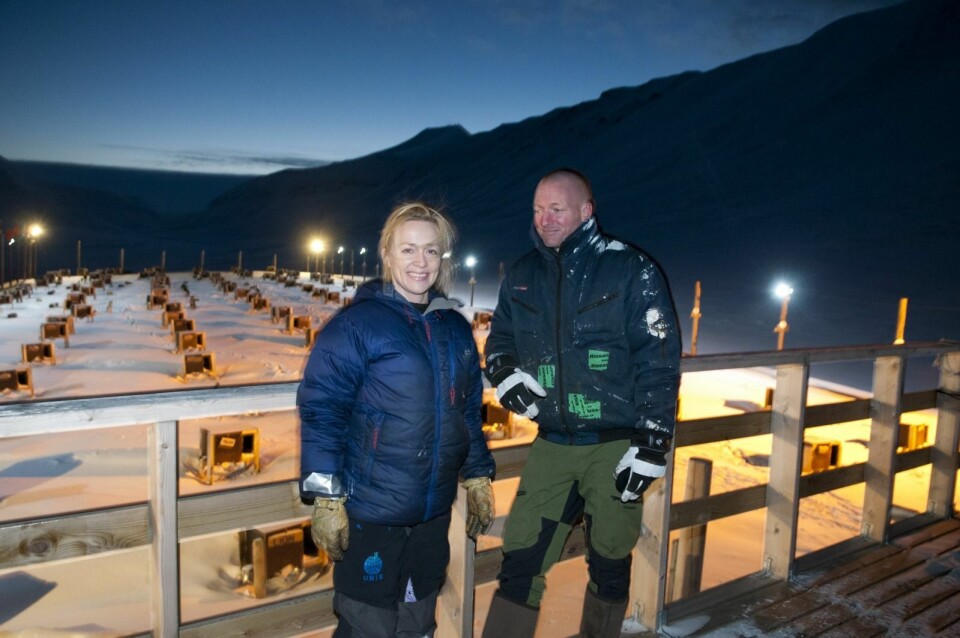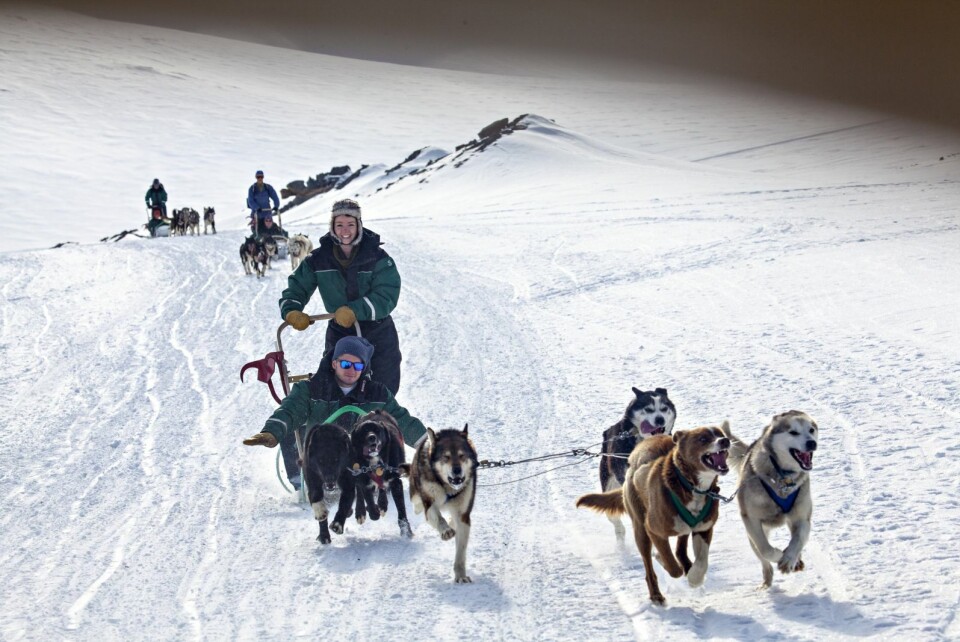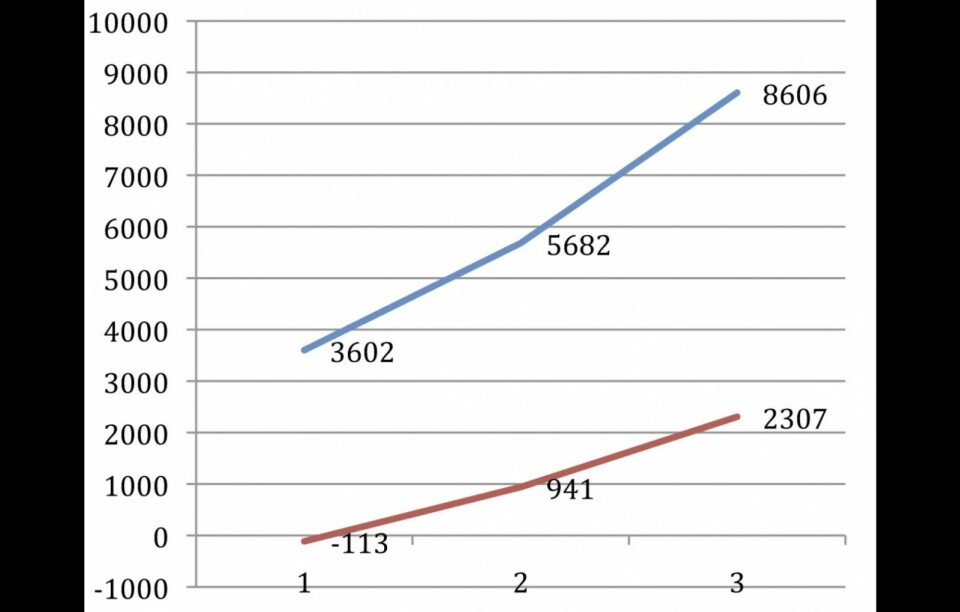Following the dream, creating a money machine
Dogsledding has become big business for Karina Bernlow and Martin Hartmann Munck.

Denne artikkelen er mer enn 10 år gammel.


The traveling companions were making the journey by dogsled to Scott Turner Glacier at the head of the valley. It was a lifetime experience for Bianca Conway of Australia and her girlfriend Ashley David Cook from New Zealand.
"This is incredible. You can safely say it is quite different from Australia," Conway said when Svalbardposten met her earlier this spring while they were guiding a team from Green Dog Svalbard AS.
The season was on the wane, but the experience was nonetheless great.
Good year
Last year's account statements are now clear and show Green Dog Svalbard had a strong upturn. The company had a gross income of 8.6 million kroner in 2014 and a year-end profit of 2.74 million kroner before taxes. That's more than more than twice as much as 2013, while in 2012 the company suffered a loss of 113,000 kroner. Gross income has also increased significantly compared to the 3.6 million kroner earned in 2012.
The company started by Karina Bernlow and Martin Hartmann Munck has therefore grown sharply. The company's credit rating moved from middle/weak in 2012 to "excellent" in 2014.
"Yeah, 2014 was a great year, " Munck said.
"About the results, I think that this show politicians and others that dogsled tourism is not simply ecotourism run by idealists and a positive contribution to the climate debate, but also a significant contribution to the local community's economy. And there should be efforts made to ensure that development can continue."
Upgrading
After a stay in Greenland, the couple took over the kennels with 60 dogs from Jens Abild in the fall of 2011 and established Green Dog Svalbard.
"Initially we will continue the same way as Jens, to form an overview of how it is to operate with tourist drivers here," Munck said at the time. "After we get to know that, we will maybe some new ideas."
Green Dog Svalbard AS was founded in October of 2011 and registered in The Register of Business Enterprises the following month with a share capital of 100,000 kroner.
The growth means the company has been able to upgrade and expand its kennels, and renovate structures. Green Dog currently has about 150 dogs at their facilities about 10 kilometers outside of Longyearbyen.
"We are continuously having to assess the situation two years ahead of time, as it takes two years to get new dogs ready by their own breeding," Munck said.
50/50
The 42-year-old from Denmark said the results from 2014 signify a good market with growing demand for such experiences.
"We have invested a lot in marketing, where great people with great enthusiasm have spent time, money and energy in selling Svalbard," he said. "And in the last part, we have maintained a constant eye on the actual operation, while at the same time we have tried to be farsighted so the growth in the number of dogs and equipment has followed the demand. In everyday life there has been a good and constructive cooperation between the participants, which means that the client has received a good experience and as many as possible have come out on tours."
Spitsbergen Travel is now one of the owners, with a 50 percent share. The collaboration with the Hurtigruten-owned tourism operator has given sales an extra push. Munck handed over his chairman of the board title to Spitsbergen Travel Director Knut Harald Holst-Hansen and is now concentratating on the actual operation as general manager.
Revenue increased 54 percent from 2013 to 2014. The improvement of more than 150 percent resulted in a dividend of one million kroner.
'Good dialog'
The entrepreneur said he expects the upswing to continue since there is reason to believe there's room for more dogs and dog-related offerings. He said he is in talks with the Longyearbyen Community Council, which recently approved its so-called master plan for tourism in Svalbard, regarding future operating conditions.
"We are experiencing a positive and engaged dialogue, and focusing on the political desire to create more jobs in tourism," Munck said.
Translated by Mark Sabbatini
